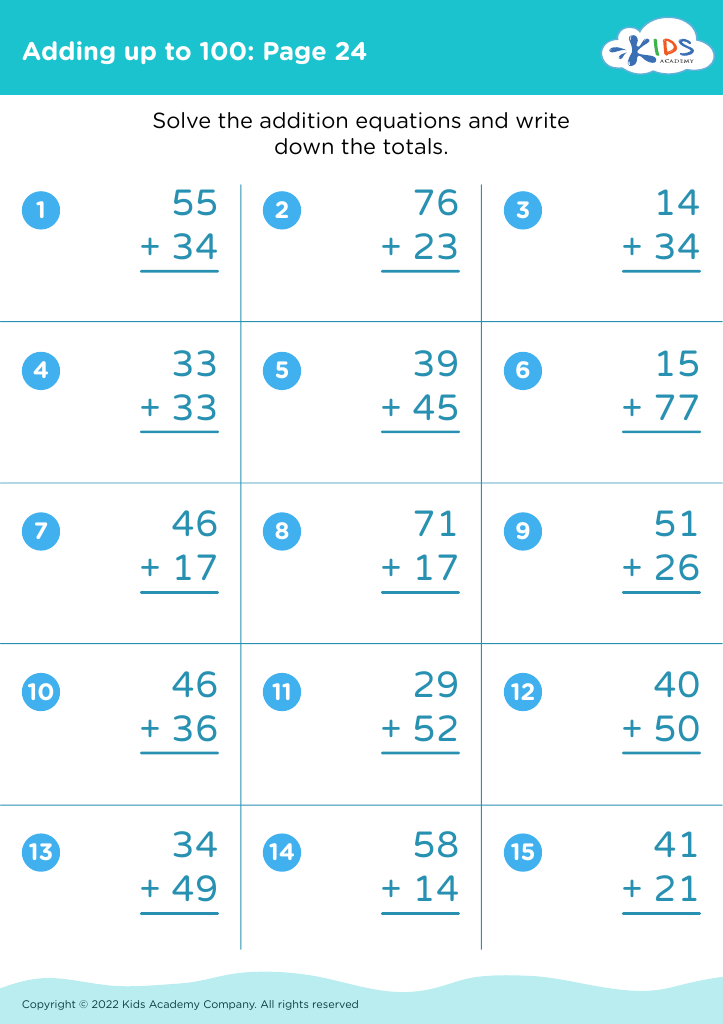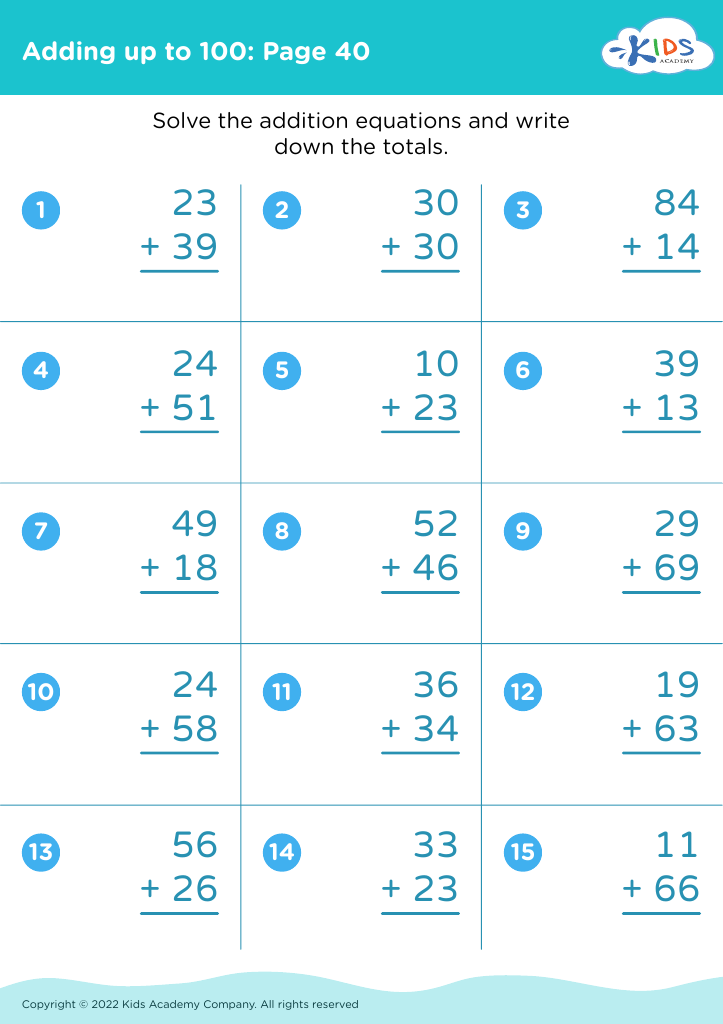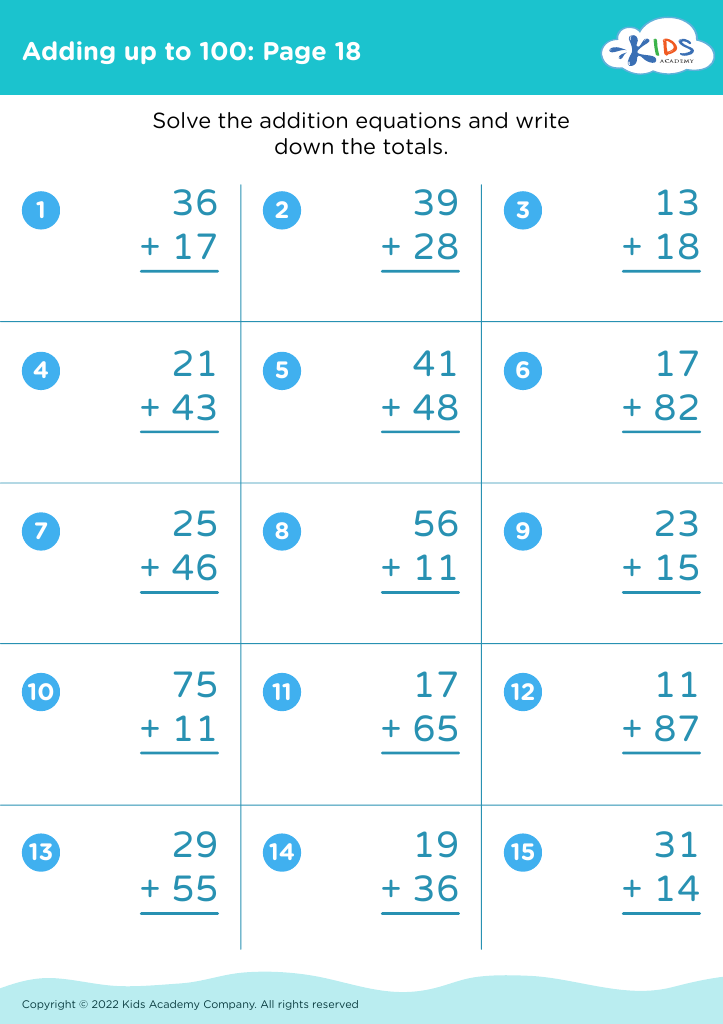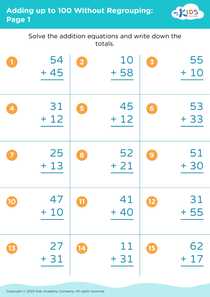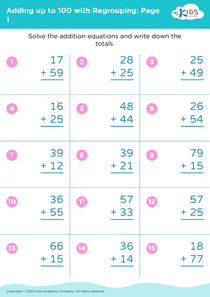Develop fine motor skills Adding up to 100 Misc Worksheets for Ages 4-8
4 filtered results
-
From - To
Boost your child's confidence and learning with our "Develop Fine Motor Skills: Adding up to 100 Misc Worksheets" designed for ages 4-8. These engaging worksheets not only enhance math skills but also focus on developing fine motor abilities through fun activities that involve tracing, cutting, and coloring. As young learners grasp basic addition concepts while honing their hand-eye coordination and dexterity, they'll discover the joy of math in an interactive way. Perfect for at-home practice or classroom use, our resources ensure that children enjoy a comprehensive learning experience that lays the foundation for future academic success. Start their journey today!
Developing fine motor skills in children aged 4-8 is essential for several reasons. Firstly, fine motor skills are crucial for daily tasks such as writing, drawing, and using scissors. Mastering these skills lays a strong foundation for academic success, enabling children to express their ideas and engage in classroom activities effectively. As children learn to manipulate small objects, they enhance their hand-eye coordination and dexterity, which are fundamental for more complex tasks in later years.
Moreover, fostering fine motor skills contributes significantly to the development of cognitive abilities. Activities that strengthen these skills promote problem-solving, creativity, and critical thinking. For example, tasks like building with blocks or threading beads encourage spatial awareness and planning.
Additionally, nurturing fine motor skills supports emotional growth. As children achieve proficiency in these areas, their confidence and self-esteem improve, encouraging them to take on new challenges with enthusiasm.
Lastly, fine motor skill development is an important part of childhood play, fostering engagement and exploration. For teachers and parents, emphasizing activities like arts and crafts, puzzles, and hands-on games can make a lasting impact, creating a well-rounded developmental experience for young learners. Prioritizing fine motor skill development is an investment in children’s future independence and success.
